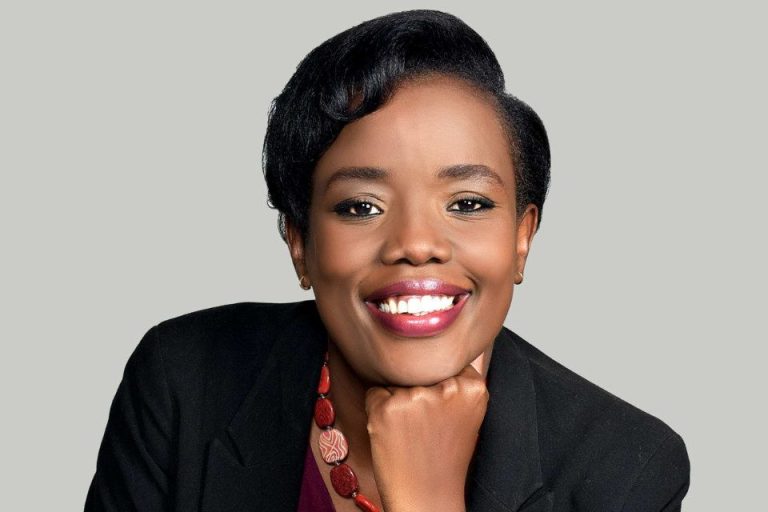The Government of Brazil and Kenyan civil society leader, Stephanie Muchai, have assumed co-chairship of the Open Government Partnership (OGP), with an invitation to governments, civil society, and other stakeholders worldwide to redouble their collective efforts towards open government for a better world, as they outlined a two-pronged agenda for their leadership.
Ms Muchai, a member of the OGP Board of Directors, a second-term member of its Steering Committee, and Programme Director, Governance and Anticorruption, for the International Lawyers Project (ILP), alongside the Government of Brazil, have outlined two strategic priorities as Co-Chairs in the joint vision announced in Brazil on November 12, 2025, which they described as “open government in practice” and “open government for a better world”
Under their first strategic priority, ‘Open Government in Practice,’ they plan to steer dual digital and environmental transitions for people and the planet. Their second strategic priority, ‘Open Government for a Better World,’ will highlight OGP’s role in international dialogue and cooperation.
According to the Co-Chairs, their shared vision is rooted in collective progress and transformation that seeks to respond to people’s real-life needs, experiences, and perspectives.
Describing the current context in which their priorities have been determined, they noted that across the world, rapid political, economic, technological, and environmental shifts are combining with persistent structural challenges to produce multiple, overlapping crises that governments consistently face.
Meanwhile, the Co-Chairs reiterated that civic actors face existential threats that undermine their ability to contribute to just, open, resilient, and prosperous societies, with rising authoritarianism, geopolitical tensions, disinformation, and deepening inequalities eroding public trust, weakening institutions, and fragmenting societies.
In their view, these challenges have arisen precisely when intentional, coordinated, and cooperative efforts among States are most needed to deliver better outcomes for both people and the planet.
The Co-Chairs said: “This is the mission of the open government agenda: far from being just a set of technical reforms, it is a powerful political project, an engine for hopeful alternatives to authoritarianism and failures in collective action.”
Elaborating on their Open Government in Practice priority, they noted that “the digital and environmental transitions are reshaping how we live, how we make sense of the world, and the conditions under which we negotiate differences and seek common ground across diverse actors and perspectives.”
The Co-Chairs stressed that tackling climate change and democratising the benefits, while mitigating the risks of the digital revolution, requires the engagement of all sectors of society.
They believe that their Co Chairship presents a timely opportunity to promote the tangible benefits of open government as a means to collectively address these dual transitions, showcasing concrete and transformative domestic applications of the principles of openness, transparency, participation, accountability, integrity, and responsiveness in climate action and digital policy.
The Co-Chairs insisted that “these principles not only improve the quality, legitimacy, and effectiveness of government, but also enable the kind of public action that can advance economic justice, reduce inequalities within and among countries, expand equitable access to public resources and services, rebuild public trust, uphold human rights and diversity, strengthen democratic resilience, and protect civic space.”
They pledged that throughout the year of the Co-Chairship, they will create opportunities for mutual learning across countries and sectors, focusing on concrete processes for reshaping the relationship between government and society to make it more participatory, collaborative, and accountable; and innovations in public management that strengthen the capacity of governments for meaningful, high-quality civic engagement.
On their second priority of Open Government for a Better World, they observed that as the OGP approaches its 15th anniversary in 2026, this is a timely moment to take stock of “our collective journey to learn from the past and sharpen our focus on the future.”
According to them, building on the Open Government Declaration, a foundational document of the OGP, and the OGP’s 2023-2028 Strategy, which remain strong foundations for addressing new and emerging challenges, as they see OGP at 15 as a critical opportunity to reflect, adapt, and reinvigorate political leadership and commitment to open government values.
The Co-Chairs insisted that at a time when global challenges are increasingly complex and interconnected, the open government agenda must continue to strengthen its contribution to international dialogue and cooperation.
To this end, they promised to work with the OGP Steering Committee and its broader membership to inspire and support efforts to sustain and expand open government reforms across the globe, highlighting OGP’s role as a mechanism for delivering tangible results; elevate key global voices and leadership in regional and international fora to secure multilateral cooperation and political support for open, accountable governance for people and the planet; activate and nurture new generations of leadership and ownership for the open government movement; and promote national and local evidence-based strategies for integrated, multi-level governance to guide OGP’s next 15 years.
Describing the time as a pivotal moment to shape the next chapter of the OGP, with shared purpose, meaningful collaboration, and sustained determination, the Government of Brazil and Ms Muchai invited governments, civil society, and all stakeholders to redouble collective efforts toward open government for a better world.





